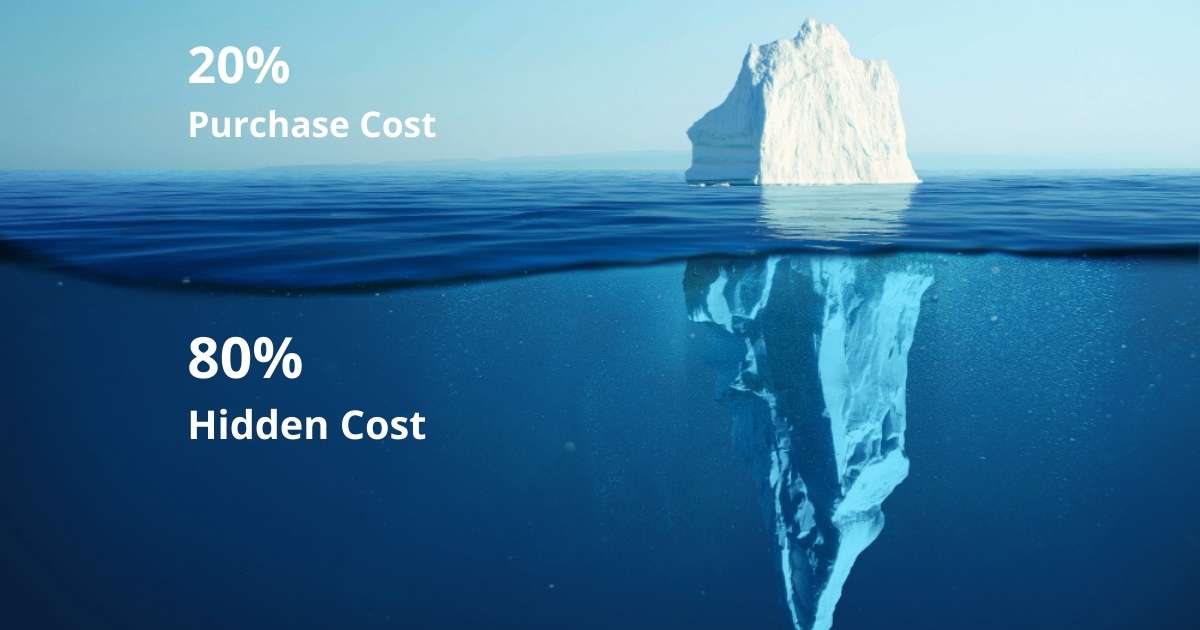In today’s changing business environment, businesses require a flexible and agile approach to establishing the best IT ecosystem to ensure competitive advantage. And the main aim behind introducing composable ERP is to fulfill these needs. It is quite new in its market and is gaining much fame among businesses throughout all industries.
The core concept of this system includes segregating business logic from the data which offers a number of advantages for organizations. This help makes the system more flexible and easier while also allowing simple and easy integration with other systems.
Composable ERP helps you manage your business operations more efficaciously and its customization feature helps respond to changing market situations in an optimistic manner.
How composable ERP is more advantageous than traditional ERP?
Composable ERP systems offer a number of advantages over traditional ERP systems. The most crucial advantage is that composable ones can be tailored to meet the specific needs of a business. However, this situation is in complete contrast to the traditional software which is typically one of its kinds solution and does not always suit the individual business requirements.
Composable systems can be easily updated. Since they are modular, single system components can be updated without affecting the entire system. This makes it easier for companies to keep their systems up-to-date with the latest features and functionality while making sure that they achieve maximum profitability.
<<Also Read: Top 3 Benefits of Implementing Sage ERP for SaaS Businesses>>
Another biggest benefit of composable ERP is that it can be customized to meet the specific needs of your business. Every company is different, and therefore every company requires a different type of software solution. The system allows you to mix and match different software programs to create the perfect system for your business. This approach saves you time and money but also ensures that you are getting the most out of your software.
Finally, composable ERP systems are quite less expensive as compared to traditional ones. It is because businesses can choose only the modules they need, rather than buying a system that includes features and functions that might have no use for them.
How Composable ERP can help you stay up-to-date?
Nowadays, composable ERP systems are quickly becoming the go-to choice for businesses who are looking for a reliable and efficient way to manage their operations. By allowing businesses to tailor their ERP system as per their business requirements, these systems provide a level of flexibility. This flexibility can help businesses stay abreast of the competition by allowing them to quickly adapt to changes in the market.
These ERP systems are much easier to deploy. Organizations don’t need to invest in expensive customization and implementation costs. Moreover, their configurations can be changed quickly and easily, enabling companies to respond quickly to market fluctuations.
In addition, these systems are designed to integrate seamlessly with popular third-party applications, enabling organizations to use the technologies they need without having to invest in expensive proprietary solutions.
<<Also Read: 8 Ways to Improve Businesses with Finance ERP>>
On the cost front basis, the composable system is often more affordable. This is because businesses only need to purchase the components of the system that they need, instead purchasing a pre-made system that may not meet all of their needs. This can save businesses a significant amount of money which can be critical.
Some Challenges of Composable ERP
Although it comes with many benefits, there are some challenges associated with composable ERP.
One of the main challenges is the complicated integration. It requires the IT team to combine several different applications and services and ensure they integrate seamlessly. This can be a time-consuming and challenging process and often needs extensive technical expertise.
Another challenge is the cost. While it promises increased agility and scalability, it requires a significant investment in IT resources and staff. Additionally, the cost of integrating and customizing existing applications may be significant. This can create a hurdle for small businesses which may not have the required budget for an appropriate ERP solution.
The scalability and flexibility of composable ERP can also be a challenge. With multiple applications and services to manage, it can be difficult to keep everything in-sync when changes are made. Moreover, the complexity of the system requires careful and frequent monitoring to ensure optimal performance and reliability.
Overall, while this ERP offers many advantages, there are some challenges associated with its implementation. Businesses must carefully weigh the benefits and drawbacks of such a system before making a decision. But, with appropriate investment strategy and preparation, it can be a powerful and cost-effective tool for businesses.
<<Also Read: 21 ERP Software Statistics You Need to Know>>
The Future of Composable ERP
The future of enterprise software is gradually shifting to composable ERP which is built on software components that can be quickly deployed and integrated into existing business systems.
The system offers greater scalability and easily replaces a rigid as well as complicated all-in-one system. It allows businesses to customize their ERP to one such that can fit into their core needs while also helping them to keep with quickly changing business environments.
In the coming time, these systems would be more likely to be a vital part of the business. They offer a simple, easy, and cost-effective method to stay updated with the latest technology and offer the flexibility to meet the ever-evolving requirements of the business.
Down the Line
No doubt, deploying a composable ERP system for your business is a profitable thing. But, if you are considering using it in your business, there are a few things to keep in mind. You should make sure that the software is compatible with your existing systems. Another thing is to be sure to quality check the software before making a confirm decision. Also it is essential to consult an expert ERP consultant to get the most benefit out of your composable ERP system.





